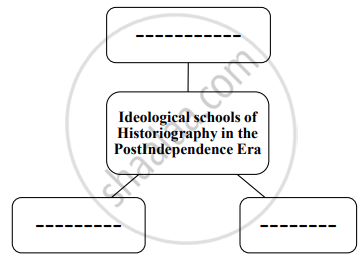Advertisements
Advertisements
प्रश्न
Write short note on orientalist historiography.
उत्तर
The European scholars who had curiosity, admiration and respect for the civilisations and countries of the East are known as ‘Orientalists’.
- They focused on Vedic tradition and Sanskrit literature and also studied the similarities between Sanskrit and some of the European languages. These studies formulated a notion about an ancient language that could be the origin of all Indo-European languages.
- The Asiatic society founded by Sir William Jones in 1784 in Kolkata opened the doors for research in ancient Indian literature and history.
- According to the Orientalist scholar Friedrich Max Muller, Sanskrit was the most ancient language of the Indo-European languages. He was deeply interested in Sanskrit literature and translated the Sanskrit text of Hitopadesh in German and was the editor of 50 volumes of ‘The Sacred Books of the East’. Muller compiled and published Rigveda in six volumes as well as translating it in German.
- However, a scholar named Edward Said re-evaluated the orientalist writings and highlighted the imperialistic interests of orientalist scholars.
संबंधित प्रश्न
Write short note.
Marco Polo
Complete the sentence by choosing a correct option
_______________translated the Sanskrit text of ‘Hitopadesh’.
Identify the wrong pair in the following, correct it and rewrite.
‘Who were the Shudras’ - Subaltern History
‘Stri-Purush Tulana’ - Feminist writing
‘The Indian War of Independence 1857’ - Marxist History
Grant Duff - Colonial History
Explain the following with its reasons.
Bakhar is an important type of historical documents.
Explain the following concept.
Orientalist historiography.
______ was the first Director-General of the Archaeological Survey of India.
Mahatma Phule unfolded the history of the ‘shudratishudra’ commuunities in his book ______.
Identify the wrong pair in the following and rewrite.
Complete the following concept map.

What is the contribution of Itihasacharya V.K. Rajwade to historiography?
